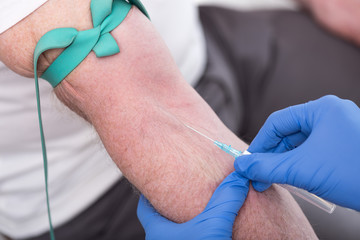
Who Can Practice IV Therapy? Can Anyone Take Our Courses?
More and more we are receiving phone calls or email inquiries about unlicensed or non-healthcare professionals and the practice of IV therapy. The question is usually “Can I take your course if I am not a nurse?” or, “I am a phlebotomist (or Medical Assistant, EMT), am I allowed to start IVs?”
Let’s address these questions!
Our courses are written for nurses and accredited for nurses to fulfill what the state board of nursing deems is required for nurses to practice IV therapy within their state. Most states require that LPN/LVNs have a post-licensure IV education course and skill competency verification to practice IV therapy. Some states are very specific as to the length of course, content of the course and what skills should be verified, as well as how many practice insertions may be required. You may see a list of each state and the course or package of education that we recommend here.
Anyone may take our online IV education courses to gain knowledge, however the successful completion of our course does not legally allow you to perform the IV related functions you have been taught.
Most states allow unlicensed personnel to practice under the license of an independent practitioner such as a dentist, medical doctor, nurse practitioner, or physician assistant after completion of an IV therapy education course, such as our IV Education for Unlicensed Assistive Personnel: Medical Assistants, Phlebotomists, Nursing Assistants course. These practitioners are held legally liable for any incident that could result due to the unlicensed personnel’s action or inaction. For example, most physician’s offices employ medical assistants. These medical assistants practice under the MD’s license. If the medical assistant is allowed to place an intravenous catheter and infuse fluids, he/she does so under the supervision, guidance, and license of the MD. If an error occurs the MD knowingly accepts responsibility.
All institutions that provide any type of infusion therapy should have a policy and procedure manual that provides details on who may provide IV therapy within their institution, what education each type of personnel must have, what skill verification each employee type must have, and what type of infusion related skills each type of employee may perform. All employees should have access to this policy and procedures information.
What states DO NOT allow UAPs to perform IV therapy?
- South Dakota: Per the SC Department of Health, the MA scope of practice does NOT include the performance of IV therapy and as such physicians and nurses may not delegate IV related tasks to the medical assistant.
What about those thinking about starting an IV infusion company or mobile unit?
IVs are a prescription item; therefore, it is necessary to be working with a licensed independent practitioner, a licensed person with the authority to write the IV prescription. It would then be up to the licensed independent practitioner what type of personnel can start IV’s and infuse any fluid or medication within the company. This licensed independent practitioner is also held legally responsible for any action or inaction that is performed by the unlicensed personnel.

